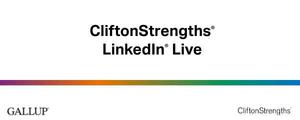Higher Education
Explore Gallup's research.

About nine in 10 college students are confident that their degree is teaching them career-relevant skills that will help them secure employment.

The percentage of Americans who consider a college education "very important" has slipped below the majority level.

A majority of U.S. parents would prefer their child go to college after high school. College graduates and Democrats highly support this pathway.

More Americans say they are confident in higher education now than a year ago, the first increase Gallup has measured in the decade-old trend.

Interest in pursuing education beyond high school remains strong, according to the latest Lumina Foundation-Gallup State of Higher Education Study.

About a third of U.S. college students have considered leaving their program. Mental health and emotional stress remain the top reasons why.

Few current or prospective college students say four-year colleges charge fair prices, but most say the investment pays off within five years of graduation.

The Lumina Foundation-Gallup 2025 State of Higher Education Study finds that 25% of adults had difficulty completing their Free Application for Federal Student Aid.

Americans now split into roughly equal thirds as to whether they have a lot of (36%), some (32%) or very little (32%) confidence in higher education.

Lumina and Gallup find Americans are more confident in community colleges than four-year universities. The greatest difference between the two is cost.

Cost and program flexibility are leading reasons Americans without a degree or credential have left their postsecondary program, and about three-quarters of these learners have considered reenrolling in the past two years.

Over half of U.S. adults say it is extremely important for businesses to avoid major pay gaps between CEOs and average employees.

Mental health and emotional stress continue to be the most important reasons college students cite for considering quitting their program.

A Lumina study finds 71% of current and future students consider state reproductive policies in college choices; 80% prefer states with greater access.

Black and Hispanic students are more likely than their White peers to report they have considered leaving their postsecondary program, and mental health and emotional stress are their main reasons for doing so.

Black Americans' perspectives on the Supreme Court's 2023 ruling to end the use of race and ethnicity in university admission decisions are quite nuanced -- and largely fracture along generational lines.

Nearly seven in 10 Americans support the Supreme Court's ban on race in college admissions, with mixed reactions among different racial groups.

Learn how Gallup is partnering with colleges and universities to bring strengths to and embed strengths on their campuses.

A recent Lumina Foundation-Gallup study shows that in 2022, Hispanic students enrolled in a post-high school program in the U.S. were more likely than any other race or ethnicity to feel discriminated against.

A recent Lumina Foundation-Gallup study found that Hispanic students struggle to stay in college more than students of any other race or ethnicity.